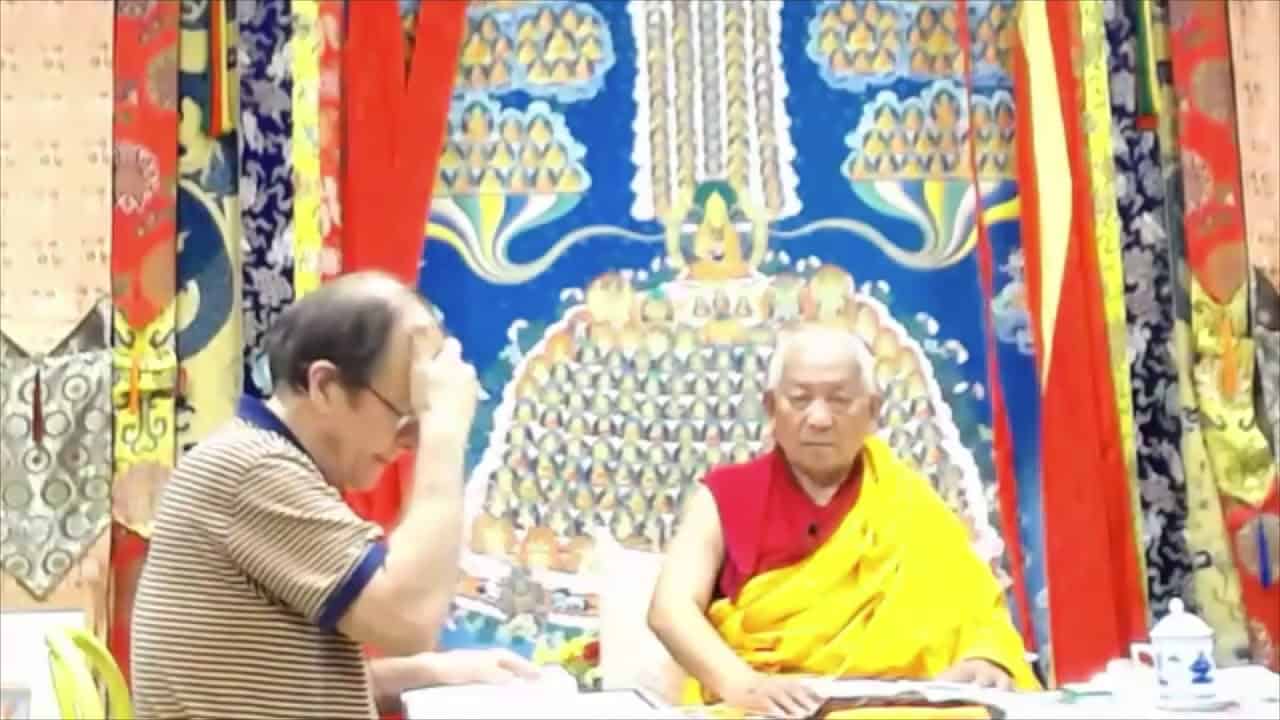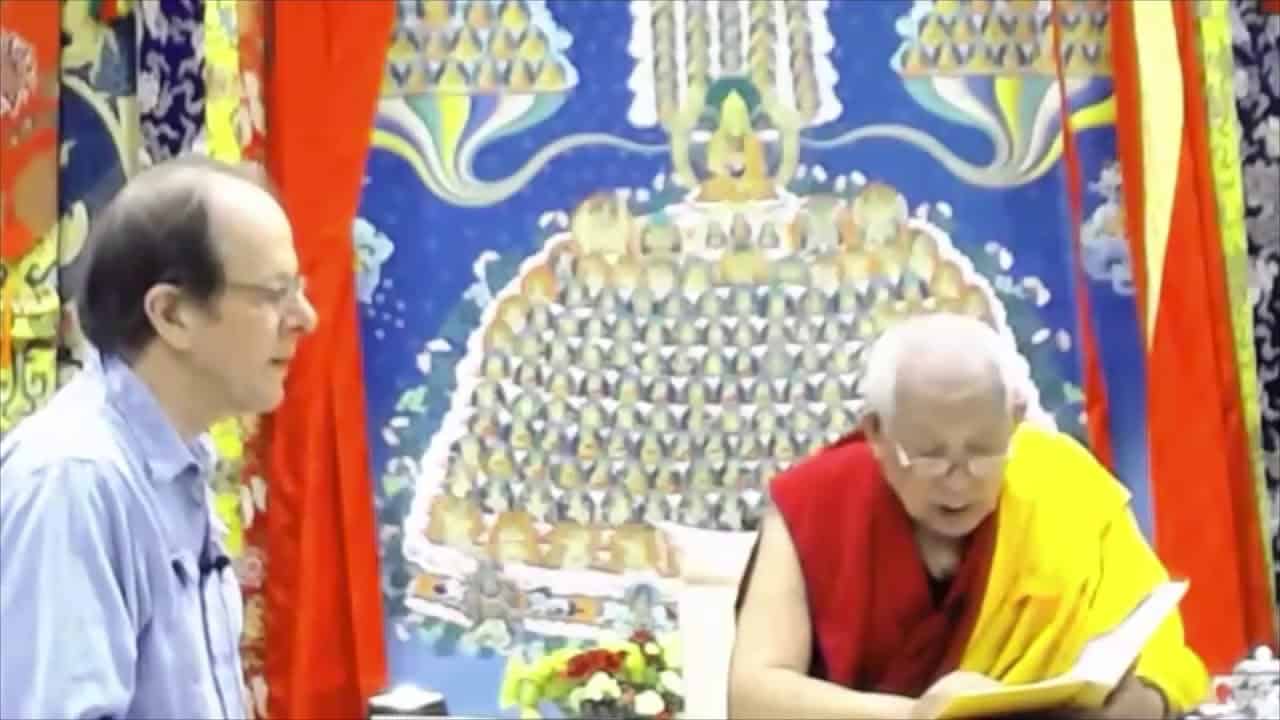Chapter 16: Verses 376-386
Part of a series of teachings on Aryadeva's 400 Stanzas on the Middle Way given on an annual basis by Geshe Yeshe Thabkhe from 2013-2017.
- Proof that whatever arises dependently and by mere imputation cannot possibly exist inherently
- How interdependence of phenomena means the lack of inherent existence
- Why the thesis of inherent existence cannot be proven
- The difference between objects perceived directly and objects existing inherently
- Is emptiness itself inherently existent?
- Neither a thesis, emptiness, nor an antithesis, inherent existence, can exist inherently
- Refuting inherent existence of functioning things
- Refuting the four extremes by reasoning of dependent arising
- Not even a particle of true existence can be observed
Geshe Yeshe Thabkhe
Geshe Yeshe Thabkhe was born in 1930 in Lhokha, Central Tibet and became a monk at the age of 13. After completing his studies at Drepung Loseling Monastery in 1969, he was awarded Geshe Lharampa, the highest degree in the Geluk School of Tibetan Buddhism. He is an emeritus professor at the Central Institute of Higher Tibetan Studies and an eminent scholar of both Madhyamaka and Indian Buddhist studies. His works include Hindi translations of The Essence of Good Explanation of Definitive and Interpretable Meanings by Lama Tsongkhapa and Kamalasila's commentary on the Rice Seedling Sutra. His own commentary, The Rice Seedling Sutra: Buddha’s Teachings on Dependent Arising, was translated into English by Joshua and Diana Cutler and published by Wisdom Publications. Geshela has facilitated many research works, such as a complete translation of Tsongkhapa’s The Great Treatise on the Stages of the Path to Enlightenment, a major project undertaken by the Tibetan Buddhist Learning Center in New Jersey where he teaches regularly.


